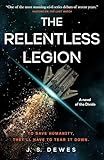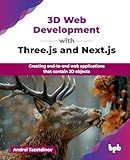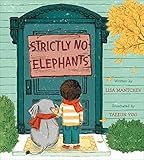Best Three.js Books to Buy in February 2026

The Relentless Legion (The Divide Series, 3)



3D Web Development with Three.js and Next.js: Creating end-to-end web applications that contain 3D objects (English Edition)



J.S. Bach: Inventions and Sinfonias BWV 772–801 | Henle Urtext Piano Sheet Music (Revised Edition) | Baroque Masterwork for Study and Performance | ... French, German) (Multilingual Edition)



Monstress Book Three



Dr. Seuss's Beginner Book Boxed Set Collection: The Cat in the Hat; One Fish Two Fish Red Fish Blue Fish; Green Eggs and Ham; Hop on Pop; Fox in Socks
- CHERISHED DR. SEUSS CLASSICS FOR KIDS & ADULTS ALIKE.
- IDEAL FOR BOTH READING ALOUD AND SOLO ENJOYMENT.
- PERFECT GIFT FOR NEW PARENTS AND SPECIAL CELEBRATIONS!



How to Haunt Your House, Book Three



Strictly No Elephants (The Pet Club Series)


Three.js remains a powerful library for creating 3D graphics on the web, and understanding how to effectively use Groups can help streamline your development process. This guide will walk you through using Groups in Three.js in 2026, offering insights into their functionality and benefits. Whether you're new to Three.js or incorporating new techniques into your projects, this is the right place to deepen your understanding.
What is a Group in Three.js?
In Three.js, a Group is a type of Object3D that allows you to group several objects together. This is extremely useful for managing complex scenes, where you might need to transform multiple objects collectively. Using Groups can simplify transformations such as translate, rotate, and scale operations that apply to the entire collection of objects.
Key Benefits of Using Groups
-
Simplification: By grouping objects, you can manage related objects as a single entity, making your code cleaner and easier to manage.
-
Transformation Efficiency: Apply transformations to a Group to affect all contained objects simultaneously, rather than applying transformations individually.
-
Hierarchical Scene Management: Groups help structure your scene graph, making it easier to understand and manipulate complex 3D scenes.
Creating and Using a Group
Here's a simple way to create and use Groups in Three.js:
// Create a new group
const group = new THREE.Group();
// Add mesh objects to the group
const geometry = new THREE.BoxGeometry(1, 1, 1);
const material = new THREE.MeshBasicMaterial({ color: 0x00ff00 });
const cube1 = new THREE.Mesh(geometry, material);
const cube2 = new THREE.Mesh(geometry, material);
group.add(cube1);
group.add(cube2);
// Add the group to the scene
scene.add(group);
// Transform the entire group
group.position.set(0, 1, 0);
group.rotation.y = Math.PI / 4;
This snippet demonstrates creating a group, adding objects to this group, and performing collective transformations.
Advanced Group Usage
Nested Groups
You can nest groups within groups to further simplify complex transformations. For instance, if you are creating a robotic arm, nested groups can help represent different segments.
const armGroup = new THREE.Group();
const forearmGroup = new THREE.Group();
armGroup.add(forearmGroup);
scene.add(armGroup);
// Apply different transformations
armGroup.rotation.z = Math.PI / 6;
forearmGroup.rotation.y = Math.PI / 2;
Group Performance Concerns
Using groups wisely can improve rendering performance, especially when dealing with numerous objects. Be mindful of over-nesting or excessively large groups which might introduce performance overheads.
Learning More About Three.js
There are numerous resources available if you're looking to enhance your Three.js skills, particularly around groups and overall scene management.
- Dive into more JavaScript Tutorials for foundational skills.
- Explore advanced visualizations like JavaScript Stock Chart to leverage Three.js for financial data.
- Understanding Momentum Calculations in JavaScript can be helpful in physics-based simulations within Three.js.
Choosing the Right Three.js Books
As a Three.js developer in 2026, selecting the right learning materials can make a significant difference. Here are some tips for choosing a book:
- Relevance to Modern Features: Ensure the book covers the latest Three.js features and best practices.
- Practical Examples: Look for books that provide hands-on projects that you can try out as you learn.
- Community Reviews: Check reviews and ratings from other Three.js developers to gauge the book's effectiveness.
Final Thoughts
Mastering Groups in Three.js can significantly enhance your ability to create sophisticated 3D scenes for the web. With practice and the right learning resources, including web tutorials and comprehensive books, you'll be able to cultivate the skills necessary to harness the full power of Three.js efficiently.
Feel free to explore the provided links and continue building your 3D graphics expertise with Three.js.
